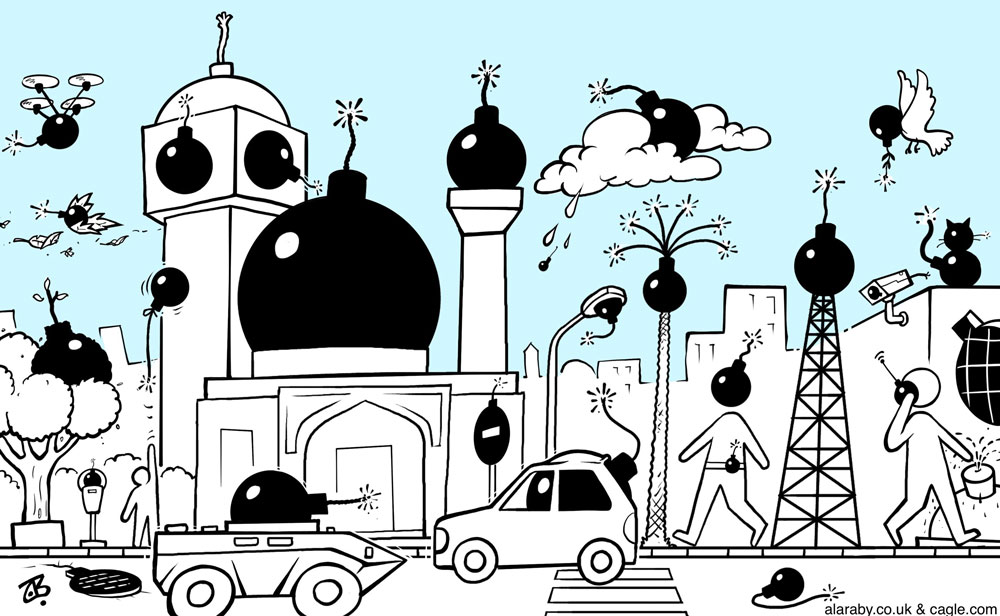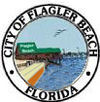
To include your event in the Briefing and Live Calendar, please fill out this form.
Weather: Sunny. A chance of showers with a slight chance of thunderstorms in the afternoon. Highs in the lower 90s. West winds around 5 mph, becoming north around 5 mph in the afternoon. Chance of rain 50 percent.
Thursday Night: Partly cloudy. A chance of showers with a slight chance of thunderstorms in the evening. Lows in the lower 70s. East winds around 5 mph in the evening, becoming light and variable. Chance of rain 40 percent.
Friday
- Daily weather briefing from the National Weather Service in Jacksonville here.
- Drought conditions here. (What is the Keetch-Byram drought index?).
- Check today’s tides in Daytona Beach (a few minutes off from Flagler Beach) here.
- tropical cyclone activity here, and even more details here.
Today at a Glance:
Drug Court convenes before Circuit Judge Terence Perkins at 10 a.m. in Courtroom 401 at the Flagler County courthouse, Kim C. Hammond Justice Center 1769 E Moody Blvd, Bldg 1, Bunnell. Drug Court is open to the public. See the Drug Court handbook here and the participation agreement here.
Story Time for Preschoolers at Flagler Beach Public Library, 11 to 11:30 a.m. at the library, 315 South Seventh Street, Flagler Beach. It’s where the wild things are: Hop on for stories and songs with Miss Doris.
Sheriff’s Summit to Protect and Serve Seniors, 3 to 5 p.m. at the Sheriff’s Operations Center, 2101 Commerce Pkwy, Bunnell. Participants will benefit from a presentation about frequent scams and frauds, have access to free document shredding and paramedicine, and will get a tour of the Sheriff’s Office Museum. The event is free to the public.
988 Suicide Prevention Walk: 5:30 at Wadsworth Park, 2200 Moody Blvd., Flagler Beach. The Rotary Club of Flagler Beach will host an Awareness Walk to promote the 988 National Suicide Crisis Hotline at 6:00 p.m. on September 19, 2024. Participants will walk from Wadsworth Park in Flagler Beach, over the Rt. 100 bridge to Veterans Park where we will gather for a brief ceremony. Anyone wishing to participate should arrive at Wadsworth Park at 5:30 pm. After a brief welcome, the walk will begin at 6 p.m. Participants are encouraged, if possible, to wear purple and/or teal, the colors of suicide prevention awareness. Advanced registration is not required. All are welcome at this cost-free event that aims to bring the community together to raise awareness about the importance of mental health and the critical resources available through the 988 hotline.
Notably: These are the times when I look at my fellow-Palm Coast residents who call themselves non-voters–the disengaged, the disconnected, the blissful–and envy them. There’s something to be said for the non-voter. I picture that non-voter as a prototypical, carefree biker enjoying an early morning swing through Town Center at slow speed, with a permanent grin affixed to a face clearly less scarred and wrinkled than the average voter’s. There must be a study somewhere, not on Truth Social, that shows you accrue seven wrinkles every time you vote. Primary or general, makes no difference. Being informed, being civic and engaged, takes a toll. Like watching a debate. Not just the ones featuring circus animals like George W. Bush or Donald Trump. Even going back to 1980, when Reagan finally got to star as a leading man, away from the B-movie universe: it was the physical equivalent of smoking a carton of cigarettes in one sitting. A binge of toxicity. Or the time Obama tanked against Mitt Romney because he couldn’t believe he was actually sharing a stage with the moron. That was like surviving an aneurysm. I stopped watching debates after that. I don;t think I’ve watched a full debate since. I didn’t watch the Harris-Cretinous spectacle of Tuesday evening, having resolved to go to sleep early and sacrifice my first pre-dawn hour, normally reserved for the better angels of our literatures, to reading press accounts, starting from across the Atlantic, where they tend to have a less hysterical, more detached way of reporting about those strange Americans. Like reading Micromegas analyzing our elections. After 56 minutes I’d had enough, and enough to write the piece I did for Wednesday morning. The whole time I wish I were either biking in Central park or writing about the Planning Board, which to me comes back to the same thing: it’s ideal avoidance of electoral follies. Every morning I reset my day’s strategy: how to avoid clicking on the usual suspects (the Times, Politico, the Post, and worst of all, the poll sites) and focus on the work at hand close to home. There’s enough of it. Fewer than two months to go, but still a slog to that inevitable night on Nov. 5 when it’ll feel like when that comet struck earth around the Yucatan and wiped out the dinosaurs 65 million years ago. Except this time it’ll be like a reverse hit. We’ll have a mass dis-extinction of maga madness either way: if he wins, we might as well be dino splatter. If he loses, we’ll have a little civil war. It’s a no-win. Thankfully the Library of America just sent me DeLillo’s Underworld, 700 pages that I’ve read twice so far in previous editions, not understanding a thing after the first hundred pages or so–among the very best pages of American literature, followed by 600 of the most incomprehensible pages in American literature, including Mason and Dixon. A third read might be just the anesthetic for the interregnum between Biden’s funeral and Jan. 20’s American Carnage Redux.
—P.T.
View this profile on Instagram
![]()
The Live Calendar is a compendium of local and regional political, civic and cultural events. You can input your own calendar events directly onto the site as you wish them to appear (pending approval of course). To include your event in the Live Calendar, please fill out this form.
January 2026
East Flagler Mosquito Control District Board Meeting
Nar-Anon Family Group
Palm Coast City Council Meeting
In Court: Angel Marie Sexton Sentencing
Flagler Beach United Methodist Church Food Pantry
Weekly Chess Club for Teens, Ages 10-18, at the Flagler County Public Library
Flagler Beach Library Writers’ Club
Random Acts of Insanity Standup Comedy
For the full calendar, go here.

We have lived by the assumption that what was good for us would be good for the world. And this has been based on the even flimsier assumption that we could know with any certainty what was good even for us. We have fulfilled the danger of this by making our personal pride and greed the standard of our behavior toward the world—to the incalculable disadvantage of the world and every living thing in it. And now, perhaps very close to too late, our great error has become clear. It is not only our own creativity—our own capacity for life— that is stifled by our arrogant assumption; the creation itself is stifled.
We have been wrong. We must change our lives, so that it will be possible to live by the contrary assumption that what is good for the world will be good for us. And that requires that we make the effort to know the world and to learn what is good for it. We must learn to cooperate in its processes, and to yield to its limits. But even more important, we must learn to acknowledge that the creation is full of mystery; we will never entirely understand it. We must abandon arrogance and stand in awe. We must recover the sense of the majesty of creation, and the ability to be worshipful in its presence. For I do not doubt that it is only on the condition of humility and reverence before the world that our species will be able to remain in it.”
–From Wendell Berry’s “A Native Hill,” The Hudson review, winter 1968-69.





































Pogo says
@P.T.
Amen.
Ray W says
Reuters reports that due to spring frosts and summer drought, this year’s overall Russian wheat crop is expected to come in 10% lower than last year’s. Early fall heavy rains now endanger winter crops in several Russian regions, with a state of emergency already issued for other Russian regions, enabling farmers in those areas to apply for government aid.
Make of this what you will. Me? When the upper Midwest experienced severe drought two years ago, cattle ranchers culled their herds by selling off cattle before maturation because rising prices for feed grains was expected to cut into their already thin profit margins. In time, beef prices rose due to the smaller cattle head count.
When a second successive drought across the upper Midwest hit again last year, cattle ranchers culled their herds again. I commented months ago that an industry journal had reported that the national head count had dropped to 51 million cattle, the lowest number since the early 1950s. Beef prices rose again. The drought broke late last year with ample widespread rain across the region. Crop futures anticipate normal crop yields for the year and ranchers are rebuilding their herds.
Two years ago, a new variant of the H5N1 avian flu virus spread through the nation’s egg laying hens. Some 60 million hens were slaughtered to stop the spread. Egg prices skyrocketed. Last year, the flu abated, but it returned this year. Thus far, some 40 million hens have been slaughtered. Egg prices are on the rise again.
The avian flu this year jumped into mammalian populations. Cattle herds across the country have been infected, including milk cows. Some humans have been infected, too, but there is no sign yet that the avian flu is easily transmissible from human to human. While the slight loss in overall production of milk hasn’t hit milk prices that much, it has hit butter prices. As I commented several weeks ago, according to a journal article, cheese is more profitable overall than is butter, so cheese producers can absorb some of the higher milk costs, but butter producers just can’t as easily pay higher prices for milk without raising butter prices. We all pay more for butter now.
While gas prices have been dropping lately, reportedly mainly due to weak Chinese demand, the recently announced OPEC+ plan to slowly increase production (roll back prior voluntary production cuts) has already been delayed once and may be delayed further still. OPEC+, with apparent complicity with a number of U.S. shale producers, has been manipulating worldwide crude oil prices for profit since February 2021. Who knows when it will end?
Wheat, beef, eggs, butter, and gasoline; each product has seen significant price fluctuations due to natural events or foreign manipulations that are beyond the easy control of any administration, yet a number of FlaglerLive commenters amplify the “pestilential” partisan claim that “we” were better off four years ago when prices for those products were lower, allegedly due to current administration policies. How gullible they are!
As an aside, the monthly EIA Short Term Energy Outlook dropped on Sept 10th.
“OPEC+ liquid fuels production decreases by 1.4 million b/d in 2024, while production outside OPEC+ increases by 1.7 million b/d, led by growth in the United States, Canada, Guyana, and Brazil.”
Global liquid fuels consumption in 2022 was 100.0 million b/d. In 2023, 102.1 million b/d. In 2024, estimated consumption for the not yet completed year is 103.1 million b/d. It is projected that 2025 consumption figures will reach 104.6 million b/d.
Can it be inferred from these consumption figures, current and projected, that we are not yet at a point where we can say we are transitioning from a carbon-laden past to a carbon neutral future, despite the rapid proliferation of renewable energy?
Ray W says
The Post is running an interesting article.
In 2020, early during the pandemic, former President Trump stated that the “cure cannot be worse than the disease.” Shortly thereafter, a group self-identified as “Liberate Minnesota” planned a pandemic-related protest against Governor Walz for April 17th. Fox News ran a segment on the planned protest. Two minutes after the segment, Trump tweeted: “LIBERATE MINNESOTA.”
On the sixteenth of April, “Liberate Minnesota” demonstrators gathered in front the governor’s residence. Governor Walz called the White House seeking an explanation for the meaning of Trump’s comment about the cure; he didn’t get any.
During a 2021 interview about the Liberate Minnesota events, Walz commented to reporters: “Just to be very candid, the rhetoric that the president engaged in, and then was amplified by others, changed the whole dynamic, especially in a state like Minnesota where I could be out by myself without folks around and it would be fine.”
On last night’s Gutfield talk show, Trump described the phone call from Walz as occurring during BLM riots that took place in Minnesota at a different timeframe. During that different time, pro-Trump protesters had also been at the Walz residence. Former President Trump actually tweeted the infamous “when the looting starts, the shooting starts” quote during the BLM protests. But Walz didn’t call the White House during that period.
Last night, according to Trump, those who had surrounded Walz’s home “… were MAGA people, you know, they like the American flag, all right? And they also had Trump [flags].”
Trump went on. He said Walz asked him to tell his people that Walz was their friend.
Trump said he then tweeted: “He’s a good man, the governor. He’s on our side.[“] Trump added, “I don’t, I didn’t know him, but I didn’t want him to get hurt. … And everybody put down their flags and they left.”
Make of this what you will. Me? The thrust of the article is that last night Trump bragged about being able in 2020 to call off his Minnesota followers with a simple tweet, yet in 2021 he waited 126 minutes after the assault on the American capital had started to release a video asking the protestors to disband.
It is not reported that the tweet to the “Liberate Minnesota” group ever actually occurred. I don’t know if Trump’s comment last night is true about his tweeting to his followers. But I have to consider the possibility that, if true, Trump conflated portions of two different events and put his own special spin on the admixture (something that is added to something else). Yes, there was a phone call by Governor Walz to the White House. Yes, there were BLM riots in Minnesota. Yes, there were “Liberate Minnesota” protests in April 2020 after Trump amplified the Fox News coverage to his followers.
Is it fair to say that if indeed Trump tweeted his followers in April 2020 and told them to go home and they immediately obeyed, then he obviously should have known that he could have tweeted his followers on January 6, 2021, and told them to go home, too. We all know he didn’t do that for over two hours.
Laurel says
Trumpism is a cult. There is no other explanation. His loyal put up with the nonsense he spews. They actually back him, though they have to “hold their noses” to vote for him. They cover his lies with excuses. They ignore facts on a regular basis for years now. They ignore the economy. They ignore gas prices. They believe the greatest country in the world is a “banana republic.” They are okay with women being humbled, and sexually assaulted. They are okay with government in their bedrooms. They are okay with a felon. They believe he is a victim. They believe that immigrants, which our country was built on, are after them…and their pets. They ignore the fact that their cult leader wants the Constitution and Supreme Court to do his bidding. When asked “Why do you like Trump?” they freak or disappear. Often, they don’t want to talk about it, or they immediately deflect.
This is not a normal run for President, it’s a cult, pure and simple. It’s sad, and it’s sick. If it looks this bad from the inside, can you imagine how it looks from the outside?
Sorry Ray W, you can write all the facts, and logic you can easily muster up, and they will not listen. Cult members need intervention; they are not otherwise reachable.
Sherry says
Hi Laurel,
I couldn’t agree more. We are living in a literal “Twilight Zone” of trump cultism!
May we be blessed with a return to “sanity”, SOON!
GO Kamala and Tim!
Ray W says
According to a 2023 Olive Oil Times article, Spanish olive oil production is down 55% due to high temperatures and drought in 2021-2022. The drought conditions continued into 2023. According to the author, Spain accounts for almost half of the world’s supply of olive oil.
In January 2022, olive oil sold for $3,500 Eurodollars per ton. By mid-April 2023, the price had increased to $5,800 Eurodollars per ton.
Last year saw an extreme drought across Spain, Italy and Greece. Perhaps a year ago, I commented to FlaglerLive readers that olive oil prices were going to rise. I bought extra oil when it was on sale, but not so much that it would risk turning rancid. I am out now. Now, I see that a 32 oz bottle is BOGO at Publix for $29.99, which is nearly double the price from a year ago.
Make of this what you will. Me? The gullible among us will blame our pandemic-caused inflation (or someone else) for the rise in retail olive oil prices. They will be wrong.
Ray W says
Late in August, Hyundai announced that beginning in 2027 it would introduce a three-row extended range EV SUV, dubbed the Ionic 9, made in a Georgia factory for sale in the North American market, with a range of 560 miles (900 km). The press release said the vehicle “offers price competitiveness over EVs through battery capacity optimization and allows for both refueling and stress-free charging.” Battery size was described as 30% smaller. The drivetrain consists of four-wheel drive via two electric motors.
Once again, an extended range EV differs from normal hybrid vehicles because the internal combustion engine (ICE) only generates electricity; it has no transmission. The technology debuted in land transport form in 1925 when GE released the first diesel-electric locomotive, though prior to WWI, several nations were building submarines with ICE that drove only generators to power batteries. An electric motor rotated the propeller. The technology has a long and successful track record in the rail industry. A number of car companies have made ER-EV cars in small batches, but they didn’t catch on.
Make of this what you will. Me? With only electric motors, an ER-EV need not have a large ICE for acceleration. The ICE only has to make enough horsepower to generate the electricity needed to maintain a steady highway speed. The battery takes care of acceleration. I looked up the formula to confirm what I knew from my youth. It takes between 15-20 horsepower for a normal sized car to maintain a speed of 60 mph on a level roadway, with aerodynamic drag and frictional losses accounting for the differences. Wide tires produce more drag than do narrow tires. A V-8 has more moving parts than does a straight four. Wind resistance rises exponentially, so it takes a lot more power to move a car at 90 mph than it does at 60. If a car company designed a small ICE that produced no more than 100 hp, that should be enough to sustain a highway speed of 100 mph for miles and miles.
So, here’s what I see from the Hyundai release. A normal EV battery is around 1000 pounds. If Hyundai’s battery is 30% lighter, that means a 300-pound weight savings, along with 30% less need for lithium and other expensive metals per battery, which lowers manufacturing costs. Lacking a transmission, that means another several hundred pounds of weight savings, though that would be partially offset by the weight of an oversize generator (batteries are DC, while motors are AC, which means the use of an inverter to power the motor and a reverse inverter to have power from regenerative braking via the motors to recharge the battery when slowing down). Losing the transmission lowers manufacturing costs. There are frictional losses with any transmission, anyway, so the absence of one makes travel more efficient. The smaller engine, purpose designed to generate the necessary power at its most efficient operating speed, say 2500 rpm, never needs to accelerate the car. While powering the generator to recharge the battery, it never needs to run at a speed outside its most efficient rpm. A smaller engine that runs at a steady speed needs a smaller radiator that doesn’t have to deal with extra heat of an engine running at a full load at redline. Both a smaller engine and a smaller cooling system lowers manufacturing costs and lowers weight. Yes, there are two electric motors, each attached to a transaxle, to achieve four-wheel drive. Less weight means less rolling resistance at speed. I have no idea the possible weight savings, but savings might be possible when compared to a traditional V-6 ICE-powered car.
If the 30% smaller battery than normal means a 30% less battery range than normal, that means when a motorist leaves home for an ordinary day’s work or errands, then the battery range might be between 150-200 miles. On the vast majority of days, such a range means that the ICE would not start; it only starts when the fully charged battery from overnight charging discharges to a predetermined level. Once started, the ICE runs the rest of the way to keep the smaller battery charged. All of these factors might explain why Hyundai describes this configuration as price competitive.
If the ICE breaks down on the highway, the battery should have enough stored energy to get the SUV to an exit and likely to a shop. No more highway strandings in most instances, except for the remote regions of the mountains and prairies of the upper West of Mr. Tristam’s youth. No more tow trucks.
I accepted some time ago that it seems we are not yet close to “transitioning” our personal transport vehicles from a carbon-laden past to a carbon-neutral future. Range anxiety is a real emotional state that many people associate with battery-only EVs (BEV), which prevents many from considering the purchase of a BEV. Idealism has to give way to pragmatism if a large segment of the populace will not today buy a BEV. Both plug-in hybrids and traditional hybrids have drawbacks when compared to ER-EVs. If Hyundai’s new Ionic 9 seldom runs its ICE, then the full benefit of an EV is realized most of the time. If the ICE starts some 100 miles into a trip, but offers another 460 miles of range, then repeatedly diverting for a charging station while on the road goes away. Simply refuel as needed on long trips and still plug in to recharge when eating or staying overnight somewhere away from home.
If the Hyundai ER-EV SUV is truly price competitive with BEVs, and with federal subsidies, price competitive with traditional ICE SUVs, then the fuel savings when driving on electric mode would be a bonus. Just about any motorist would consider the Ioniq 9 if it cost the same as comparable ICE SUVs yet offered lower long-term maintenance costs (fewer oil and filter changes) and lower fuel costs. Regenerative brake systems promise longer brake pad life. Tire wear between vehicles of comparable weight and horsepower should be similar.